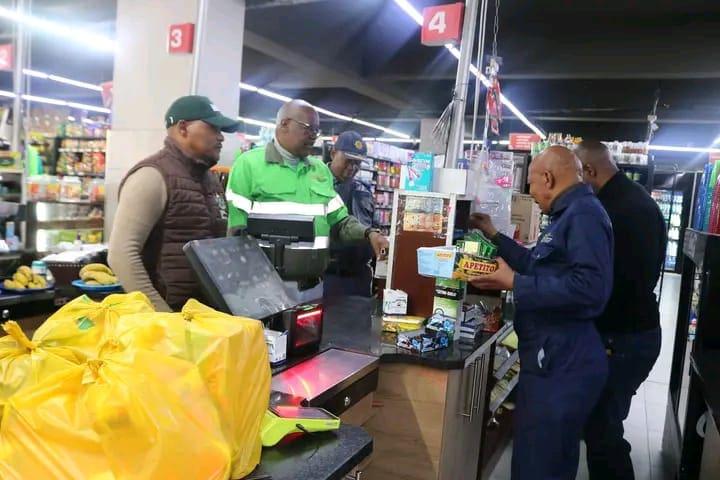Small businesses in Mangaung’s CBD are under mounting pressure as authorities tighten enforcement of the Consumer Protection Act (CPA) and safety laws, triggering immediate consequences for non-compliance.
A recent multi-agency operation led by the Free State economic, small business development, tourism and environmental affairs department resulted in fines, business closures and goods being confiscated.
“This undertaking is a testament to our commitment to ensure that consumers enjoy their rights to consume good quality foods, complying with applicable standards or any other public regulations,” said MEC Ketso Makume.
The inspections, conducted with various government departments, uncovered counterfeit products, expired items, missing labels and goods without ingredient information.
This led to immediate business closures with R5000 fines for health and safety violations and a R48,000 penalty for tampering with municipal electrical infrastructure.
Nine televisions were also confiscated for further investigation by the Independent Communications Authority of SA.
Makume stressed that protecting consumers remained paramount.
“Where goods are not safe and pose a risk to consumers, the Consumer Protection Unit together with relevant stakeholders must respond and ensure that those responsible are brought to book,” he said.
The Mangaung operation highlights a broader pattern of non-compliance identified by regulators.
According to National Consumer Commission spokesperson Phetho Ntaba, many suppliers, especially in rural and peri-urban areas, displayed goods such as noodles, sugar, soup and canned foods without visible prices.
“Inspections also found expired or spoiled items, including dairy, meat, maize meal, eggs, snacks, biscuits and noodles, with some products lacking expiry or best-before dates,” Ntaba said.
“This violates Section 55(2) of the CPA, which guarantees consumers the right to safe, usable and good-quality goods. Date markings help consumers assess product safety before purchase.”
For many small business owners, the operation underscores the daily struggle of keeping up with regulations.
“Most of us are not even aware of all the rules in the Consumer Protection Act. We buy from wholesalers and assume the goods meet the standards, but when inspections happen, it’s we at the last point of sale who get penalised. This shows how exposed small businesses are,” said Thabo Mokoena, who runs a small grocery shop in Bloemfontein.
With small businesses being fined or penalised, Mokoena told Vutivi News that he believed the enforcement was too harsh.
“We want to comply, but the regulations are not explained properly to small traders. Sometimes we only find out we’re breaking the law when inspectors fine us. Instead of punishment, the government should focus on education and support,” he added.

































































